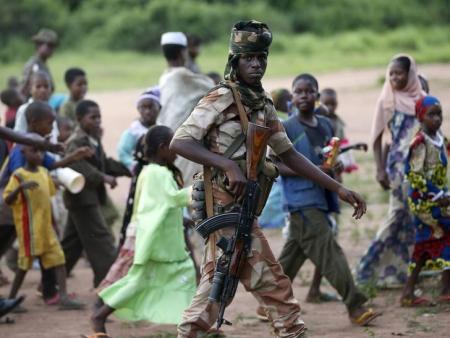The government of the Central African Republic on Tuesday signed a peace deal with 14 rebel groups in the country.
The deal was reached at series of talks held in Sudan’s capital Khartoum. It is expected to bring peace to a country that has been gripped with fighting for years.
The UN mission in CAR, known as Minusca, and the African Union (AU) facilitated the peace talks with the final announcement of a deal made on Saturday in Khartoum.
President Faustin-Archange Touadera’s government confirmed that the agreement “and its signature will take place in Bangui.”
A spokesman for one of the armed groups called FPRC had said the agreement includes an amnesty for militia fighters and an inclusive government.
Abakar Sabom was quoted by the BBC as saying that “We were able to agree on what is essential for the Central African Republic – peace. We hope this agreement will bring back social cohesion to the country.”
Key details of the deal include:
• A national unity government, in which all political and social forces of the country are involved.
• New prime minister to come from the ranks of the rebels.
• Crimes committed by members of the armed groups to be treated as individual cases.
• A truth, reconciliation and compensation commission set up.
• A “mixed brigades” of Central African soldiers and rebels under the supervision of Minusca to be set up for the disarmament, demobilization, and reintegration of the rebels.

Thousands of people have died in Central African Republic after Muslim Seleka rebels ousted President Francois Bozize in 2013.
The ousting provoked attacks from the Christian “anti-balaka” militia. The anti-balaka groups have been carrying out revenge killings.
Muslim self-defense groups have also sprang up saying they are protecting the Muslim civilians against ethnic violence.
The violence became intense after France ended its peacekeeping mission in 2016.
The government barely controls the capital Bangui and the UN mission in the country has struggled to restore order.
Source: Africafeeds.com


